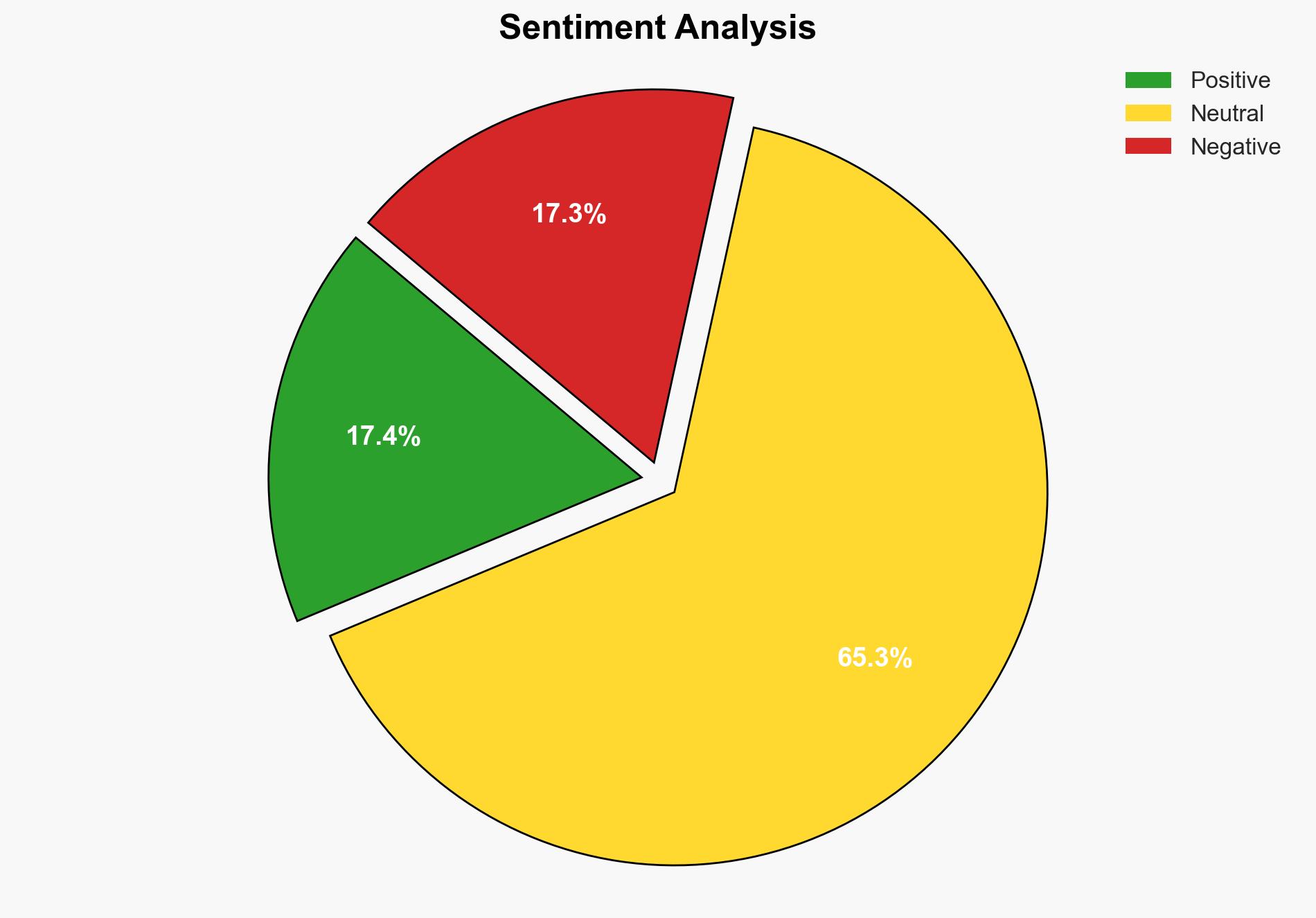‘Will be tortured in India’ 2611 accused Tahawwur Rana approaches US Supreme Court against extradition order – The Times of India
Published on: 2025-03-06
Intelligence Report: ‘Will be tortured in India’ 2611 accused Tahawwur Rana approaches US Supreme Court against extradition order – The Times of India
1. BLUF (Bottom Line Up Front)
Tahawwur Rana has approached the US Supreme Court to contest his extradition to India, claiming potential torture. His plea follows the rejection of previous legal avenues in the US. The extradition is linked to his alleged involvement in the 2008 Mumbai attacks. The US administration has approved the extradition, and Indian authorities are coordinating logistics for his transfer. This development has significant implications for US-India relations and counterterrorism efforts.
2. Detailed Analysis
The following structured analytic techniques have been applied for this analysis:
SWOT Analysis
Strengths: Strong bilateral cooperation between the US and India in counterterrorism efforts.
Weaknesses: Legal and human rights concerns surrounding extradition processes.
Opportunities: Strengthening international legal frameworks and intelligence sharing.
Threats: Potential diplomatic tensions if allegations of torture are substantiated.
Cross-Impact Matrix
The extradition of Tahawwur Rana may influence US-India relations, potentially impacting regional security dynamics. It may also affect US-Pakistan relations due to Rana’s alleged ties to Pakistani networks.
Scenario Generation
Best-case scenario: Successful extradition and trial in India, leading to enhanced US-India cooperation.
Worst-case scenario: Allegations of torture lead to international criticism and strained diplomatic relations.
Most likely scenario: Extradition proceeds with close monitoring by human rights organizations.
3. Implications and Strategic Risks
The extradition carries risks of diplomatic fallout if human rights concerns are not addressed. It may also set a precedent for future extradition cases, impacting international legal standards. Regional stability could be affected if tensions rise between India, Pakistan, and the US.
4. Recommendations and Outlook
Recommendations:
- Ensure transparent legal proceedings and address human rights concerns to mitigate diplomatic risks.
- Enhance intelligence sharing and legal cooperation frameworks between the US and India.
- Monitor regional reactions and prepare contingency plans for potential diplomatic challenges.
Outlook:
Best-case: Strengthened US-India relations and improved counterterrorism collaboration.
Worst-case: Diplomatic tensions and criticism from international human rights bodies.
Most likely: Extradition proceeds with heightened scrutiny and international oversight.
5. Key Individuals and Entities
The report mentions significant individuals and organizations including Tahawwur Rana, Donald Trump, Vikram Misri, Randhir Jaiswal, and the Ministry of External Affairs. These entities play crucial roles in the extradition process and its broader implications.





